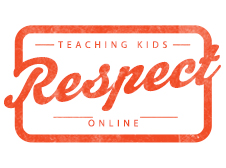4 Ways to Teach Your Child Integrity
NHA Communications TeamNHA Communications Team
Articles by NHA Communications Team
-
Wake Forest Receives State Award, Named one of Raleigh’s Best Charter Schools
Published: Jan 27, 2023
-
New Wake Forest Deans Focused on Building Connections, Host Ice Cream Social
Published: Aug 12, 2022
-
Seeds to Success: Wake Forest Scholars Learn Art of Gardening
Published: Apr 29, 2022
-
Dean Turned Principal Creates New Families at Each NHA School
Published: Apr 22, 2022
Integrity means doing the right thing—even when it’s not easy or when no one is watching. It’s something we can all build with practice, and the earlier we start, the better. While it may sound like a big concept, kids are more than capable of learning what integrity looks like in everyday life—especially when we guide them step by step.
Here are four simple ways to help your child understand and practice integrity this month:
1. Talk About What Integrity Means
Start by sharing what integrity means to you. Kids learn a lot from our words and actions, so a personal story can go a long way. Maybe you returned extra change to a cashier or stood up for someone being treated unfairly. Real-life examples help make the idea more relatable and clear.
2. Point Out Everyday Situations
Look for chances to talk about integrity in daily life. For example, what should someone do if they find a lost item at school? What happens if they make a mistake on a test? These moments help kids recognize when integrity comes into play.
3. Talk Through the Choices
Once you’ve spotted a situation, help your child think through the different ways they could respond. Encourage them to look for the choice that shows honesty, responsibility, and respect for others. Let them know it’s okay to ask for help when they’re unsure—integrity is about learning and growing, not being perfect.
4. Listen to Your Inner Voice
Sometimes, our gut tells us something isn’t quite right. Teach your child to pause and check in with how a decision feels. If something feels wrong or uncomfortable, that’s usually a sign to stop and think again.
As we focus on Integrity as our Moral Focus virtue for the month of May, let’s encourage our children to make thoughtful, honest choices—and remind them that every day is a new chance to grow into the best version of themselves.
Here are four simple ways to help your child understand and practice integrity this month:
1. Talk About What Integrity Means
Start by sharing what integrity means to you. Kids learn a lot from our words and actions, so a personal story can go a long way. Maybe you returned extra change to a cashier or stood up for someone being treated unfairly. Real-life examples help make the idea more relatable and clear.
2. Point Out Everyday Situations
Look for chances to talk about integrity in daily life. For example, what should someone do if they find a lost item at school? What happens if they make a mistake on a test? These moments help kids recognize when integrity comes into play.
3. Talk Through the Choices
Once you’ve spotted a situation, help your child think through the different ways they could respond. Encourage them to look for the choice that shows honesty, responsibility, and respect for others. Let them know it’s okay to ask for help when they’re unsure—integrity is about learning and growing, not being perfect.
4. Listen to Your Inner Voice
Sometimes, our gut tells us something isn’t quite right. Teach your child to pause and check in with how a decision feels. If something feels wrong or uncomfortable, that’s usually a sign to stop and think again.
As we focus on Integrity as our Moral Focus virtue for the month of May, let’s encourage our children to make thoughtful, honest choices—and remind them that every day is a new chance to grow into the best version of themselves.




